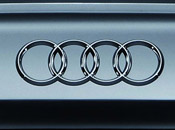Audi Q1 Insurance Rates
Buying car insurance through online rate quotes can be fast and easy and there is a good chance you may find lower rates. The most important part is to compare rates from all companies in order to have the cheapest rate quotes.
If you're new to shopping for car insurance online, you can be overwhelmed by the hoards of companies selling insurance. The are a couple different ways of comparing rates from car insurance companies in your area. The recommended way to compare Audi Q1 insurance cost is to get quotes online. This can be accomplished by comparing rates here.
Insurance premiums on a Audi Q1 will vary greatly depending on several factors. Some of these factors include:
- A clean driving record keeps rates low
- Your credit history
- Male rates may be higher
- Deductible amount directly impacts your rate
- Safety rating of your Q1
- Your job
- The amount of protection requested
- Whether you own your home
One important consideration that helps determine your rates is the age of the vehicle. Older models cost less compared to new Audi models so the cost to replace them may result in lower rates. But newer vehicles have more advanced features including dual-stage airbags, all-wheel drive, blind-spot warning system, and tire pressure monitors so those may lower rates.
To get more specific information about how rates are influenced for your specific model year, select the year of your vehicle below.
Auto liability - This coverage can cover damage that occurs to people or other property in an accident. Liability insurance covers things like legal defense fees, bail bonds, and repair bills for other people's vehicles. Coverage is generally pretty cheap so buy as much as you can afford.
Collision coverage - Collision insurance covers damage to your Audi resulting from a collision with another car or object. You have to pay a deductible then your collision coverage will kick in. Collision coverage for your Audi Q1 can be pricey, so you might think about dropping it from lower value vehicles. You can also increase the deductible to save money on collision insurance.
Comprehensive auto coverage - This coverage pays for damage OTHER than collision with another vehicle or object. A deductible will apply then your comprehensive coverage will pay. The maximum amount you'll receive from a claim is the ACV or actual cash value, so if it's not worth much more than your deductible it's probably time to drop comprehensive insurance.
Uninsured/Underinsured Motorist coverage - Your UM/UIM coverage protects you and your vehicle's occupants when the "other guys" either are underinsured or have no liability coverage at all. Since many drivers only carry the minimum required liability limits, it only takes a small accident to exceed their coverage. For this reason, having high UM/UIM coverages is very important.
Medical payments and PIP coverage - Coverage for medical payments and/or PIP pay for short-term medical expenses like nursing services, prosthetic devices, and dental work. They are often used in conjunction with a health insurance plan or if there is no health insurance coverage. Personal Injury Protection is not an option in every state and gives slightly broader coverage than med pay.
How Much are Audi Q1 Insurance Rates?

